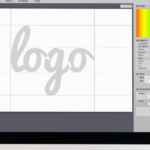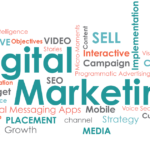The Power of Personas: How Buyer Persona Can Impact Your Self-Storage Marketing Strategy
Not long ago, marketing your self-storage business was as simple as placing an ad in the Yellow Pages and waiting for phone calls. That doesn’t work anymore. You need to be where your customers are: on social media. However, having a website or a Facebook page is not enough. You need to actively market your self-storage business to the consumers who are looking for your services. The best way to do that is to determine unique buyer personas.
A buyer persona is not merely a narrative of your prospective self-storage customer. A buyer persona provides you with more information and marketing guidance than simply profiling your buyer. It offers basic insight into what buyers are thinking during the decision-making process as they weigh their options to address a problem for which they need a solution.
Understanding your audience is vital to the success of your business. Don’t make the mistake of insisting that you already know your audience. Utilizing your time and resources to develop your buyer persona is more than worth the effort and a critical element to achieving your business goals.
To get started on identifying your buyer persona, here are the fundamentals.
Your Marketing Campaign
Remember, the purpose of marketing is to raise awareness of your brand, attract more customers, and ultimately achieve your business and revenue goals. Your brand’s visual elements should clearly communicate who you are and what you do. Simply stated, marketing is connecting the right self-storage facility with the right customer at the right time.
Your Brand
Your brand identity is about creating a visual representation. People’s brains are wired to process visual information instantly. Your brand is consistently recognizable and a clear suggestion of your promise to consumers. What can a consumer expect when interacting with your brand? What do you want to be known for?
Your Target Market
Think about the connection mentioned above. Consider not only what the customer wants but what you want. The goal is to rent units, but it is just as important to attract the right tenants. From a business perspective, you want tenants who can afford your services, but you also want tenants who are quiet, clean, and responsible. Contented, socially connected customers are more likely to brag to their friends and family about their great storage experiences.
Persona Development
How do you develop your buyer persona? The first step is to look at your existing audience: your current customers and prospects. First, develop a series of questions in the following areas:
- Demographic information (age, gender, family size, education, etc.)
- Lifestyle (activities, interests, opinions, attitudes, values, etc.)
- Reasons for Needing Storage (decluttering, life transitions, hobbies, renovation, etc.)
- Reasons for Choosing Your Facility (cost, appearance, security, flexibility, etc.)
You can send surveys to these groups, but the best method is a one-on-one interview. You want to ensure that customers are not influenced by the opinions of others. You may need a small incentive to get people to participate.
Second, you need to supplement the information from your interviews with existing data in your CRM (customer relationship management). Assuming your form fields are asking a broad range of questions, this information should demonstrate trends that help you identify your target audience, which will lead you to the development of your buyer persona.
Now that you have your buyer persona in place, you have a competitive advantage. It should be the guiding force for your marketing endeavors and the strategies you use to reach your ideal prospects. Leads, leases, and occupancy will increase because you’ll know how prospects will react to specific marketing campaigns, where your information will reach them best, and what type of content is most valuable to them in locating their storage solutions.
Keep in mind that the initial development of a persona is a one-time event; but, to be effective, they need to be periodically refined and re-established.
A buyer persona is far more than a basic description of your customers. It is critical to your success and your bottom line. It is a strategic tool that gives you the power to help buyers evaluate your services on their own terms. This builds a bond of trust that your competitors can’t equal.
The ROI is this simple: When you know how to help buyers evaluate your approach on their own terms, you build a bond of trust that competitors can’t match.


